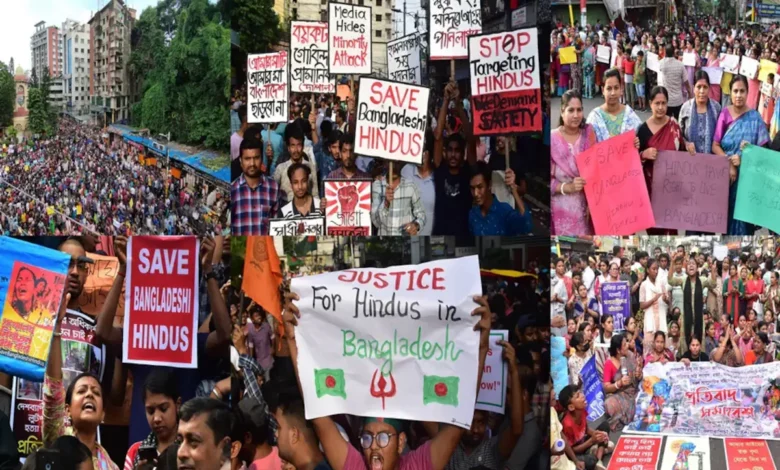
The feelings of insecurity have been experienced particularly after the Nobel laureate Muhammad Yunus has taken over Bangladesh’s new interim government. Rights activist Rana Dasgupta from Hindu groups and other religious organizations has claimed that there are well over 200 cases of violence against ethnic and religious minorities – Hindus, Christians, Buddhists, etc. – since the political change that removed Hasina from power.
These have involved the destruction of people’s houses, the destruction of business premises, including places of worship, and even cases of violence against women. Manager Tanushree Saha of a handicrafts business enterprise in the capital Dhaka related a sad incident when goons attacked her uncle’s shop in the northern city of Mymensingh.
She said: “A group of people attacked my uncle’s shop and assaulted him when he was alone, threatening to continue attacking the shop if he did not give them money. The thugs had stolen the cash till and stripped my uncle’s grocery store of its commodities. ”
Hindus are the largest minority and non-Muslim community in the Muslim majority Bangladesh, and they are regarded to be an unwavering supporter of the Awami League party of Hasina. This has made them prone to attack during political instability in the region.
One of the students involved in the recent Hindu protest in and around Dhaka University was Moumita Adhikari. She threw her arms in the air and asked, “After the defeat of the dictators, we were supposed to celebrate a victory march. Aren’t we citizens of this country?”
The interim government has at least admitted the plight of the Hindus in Bangladesh. Yunus himself said one day, ‘We have to construct a new Bangladesh; don’t divide people based on religion.
The Indian government, too, has woken up to the possibility of intimidation of Indian citizens and minority communities in Bangladesh, having set up a high-level committee to keep a vigil on the safety provisions for its citizens there. To help with any emerging concerns about the situation on the ground the committee will be in touch with authorities in Bangladesh.
While Bangladesh is passing through this phase of political change, it is going to be a big challenge for the Interim government to safeguard the fundamental rights and security of all citizens without discrimination based on religion if they wish to address the basic question of democratization of society.



